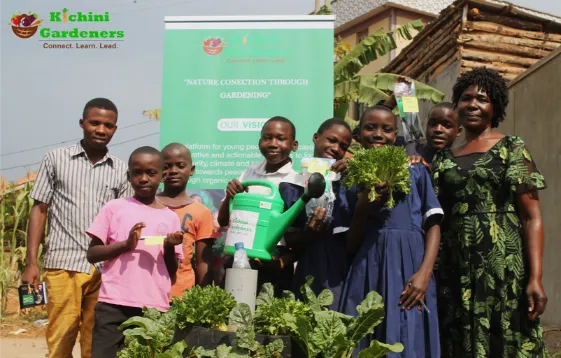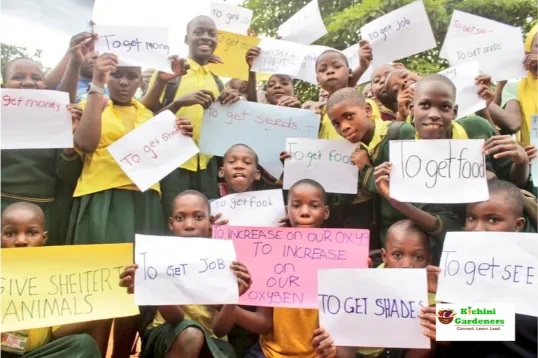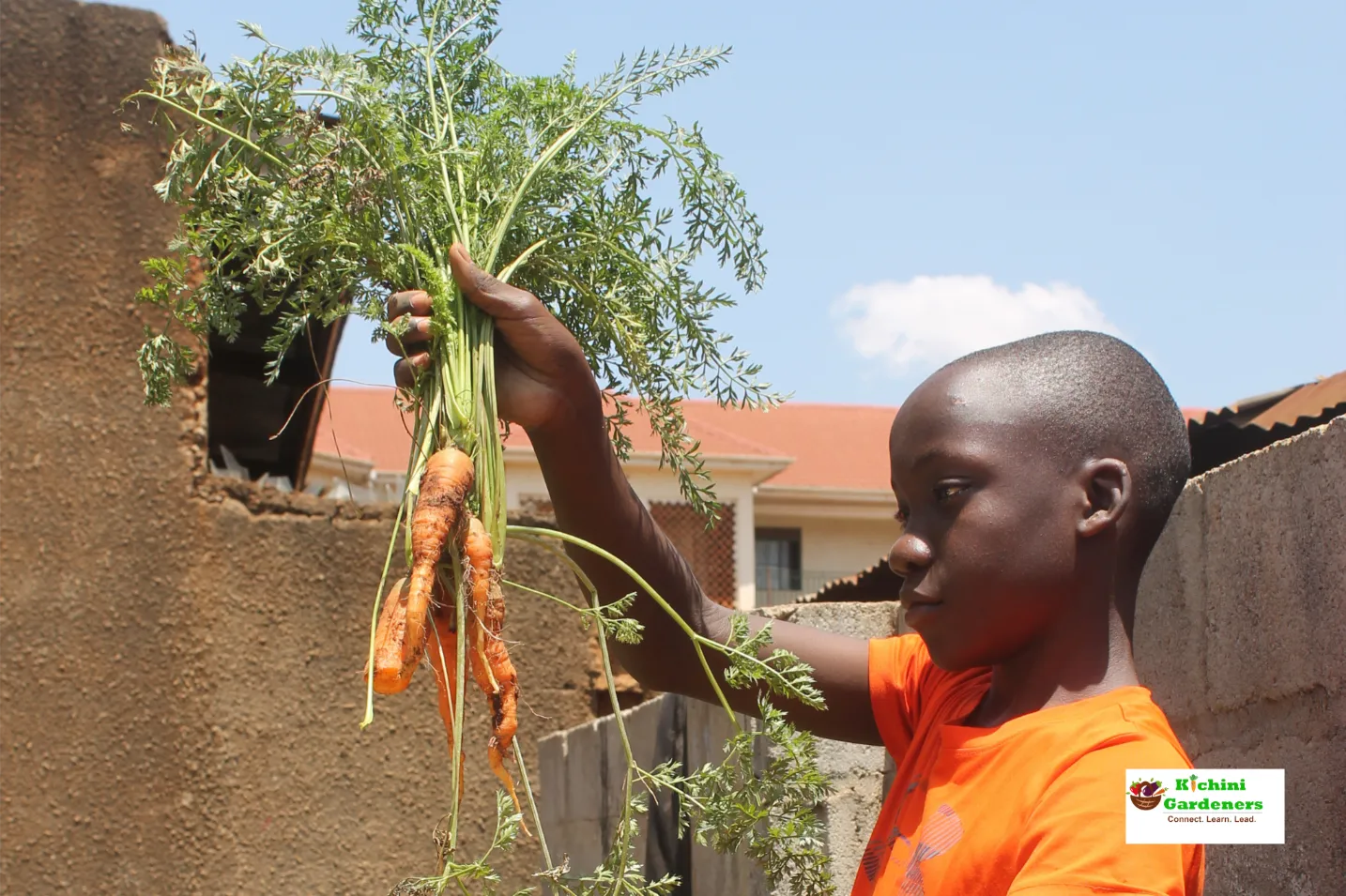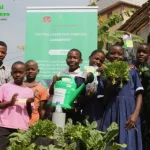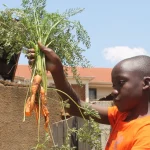Teacher: Irene Nagudi

Irene Nagudi
Irene is a gardener, conservation educator, and founder of the Kichini Gardeners Initiative. She teaches climate education and environmental conservation in rural Kayunga district, Ugandan to students in Grades five and six. Through practical teaching of climate change, she developed two toolkits on climate education and engaged over 500 students in setting up organic home food gardens, climate change activities, and the planting of fruit trees. She uses storytelling to capture students’ stories and to support intergenerational dialogues between children and the elderly. The motivation for her work comes from a desire to ensure all children have access to at least two good meals a day.
Usefull links related to the Solution
Overview
Drought and increasing temperatures have led to poor harvests and food scarcity in the central region of Uganda. Rural areas are particularly affected. Children are often needed to assist with agricultural activities or for other activities to support the family such as collecting firewood or water. This has led to high school dropout rates, absenteeism and schools full of learners who are hungry and tired before they begin their learning day.
Theory of Change
Irene noticed that her students were coming to school hungry because their parents were not able to afford food in the market. The students also had a negative attitude towards nature and very low self-esteem for potential future leaders and stewards of the environment. This inspired Irene to take action. She decided to tackle these issues through providing experiential climate change learning activities which were designed to increase the students’ love of nature and to provide food to supplement their diets.
Approach and Actions
A baseline survey was carried out which showed that 70% of students in the school were always tired, malnourished, hungry and felt self-conscious. A group of 50 students were chosen to take part in the experiential learning activities. The students took part in nature walks which incorporated the telling of their community stories. As the stories were told, Irene linked the stories to the changing climate and environment around them.
Impact
A school garden was also established and the students were provided with vegetable seedlings to raise in their own gardens at home. The students have been encouraged to share their stories about growing vegetables to inspire other students in the school to participate. The students have also taken part in a tree planting campaign. The newly established green spaces in the school grounds- the garden and the area with new trees- have been used by Irene for outdoor group learning activities including learning about climate change impacts and discussing actions the children are undertaking to mitigate climate change in their community.
